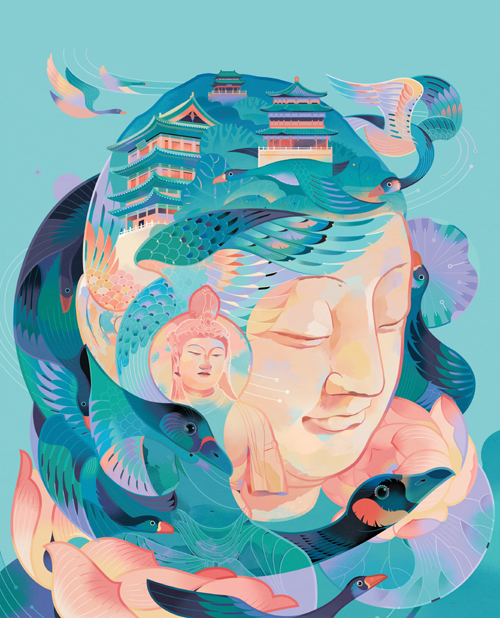

With their heads removed and bodies broken into pieces to be sold around the world, Buddhist statues taken from sacred grottoes in North China are being made whole once again — but in a digital form.
The painstaking restoration work is being done with the remnants of statues located worldwide, using advanced digital art techniques, and a verification process involving scientists and academics from China and the United States.
Once the digital image of a statue is complete, it appears as it would have centuries ago in its original setting — the Tianlong Mountain Buddhist Grottoes in Taiyuan, Shanxi province.
"The digital restoration of cultural relics preserves an accurate historical and cultural record for future generations, allowing more endangered ancient sites to be 'revived' and take their place in the world," said Zhao Hui, dean of the College of Art at Taiyuan University of Technology, one of the institutions involved in the project.
This restoration work "brings people closer to these relics, allowing more to revisit history and rediscover the original appearance of the artifacts", said Zhao.
Nestled between pine and cypress trees that dot Tianlong Mountain, the grottoes were built from the Eastern Wei (534-550) to the Tang (618-907) dynasties, when Buddhism arrived in China and flourished.